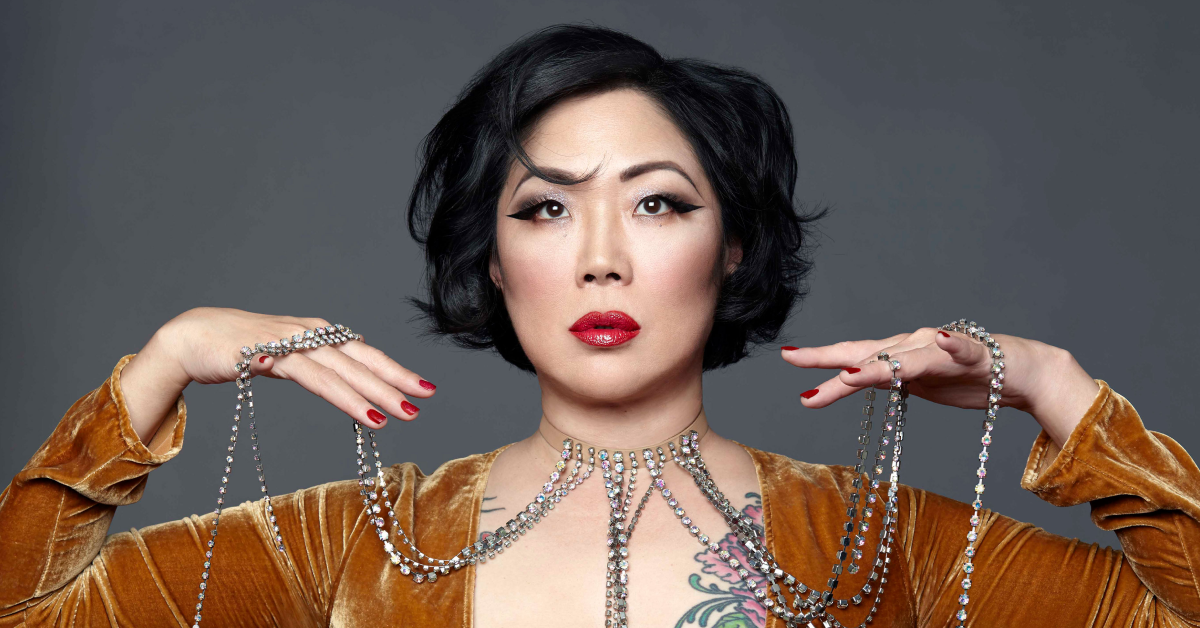Margaret Cho has been defying expectations for decades. Since starting a standup career in 1992, the multihyphenate has become entertainment’s "Patron Saint of Outsiders," lending her voice to the underrepresented and championing social justice causes as a comedian, actor, musician, and entrepreneur. In conversation with Chief Member Elaine Sir, Cho took to the Chief stage to discuss the nothing-to-lose mentality that’s allowed her to endure and succeed as one of the first and most distinct Asian voices in comedy. Read on for her thoughts on rejecting convention, overcoming barriers, and why she’s looking to the future with great anticipation.
On Being an Asian American in Entertainment
"I was raised by television. I never saw images of myself. So when I decided to go into entertainment, I didn't have anything to lose, because I didn't have anything at stake, because I had never seen any examples of what I could be," Cho said. "We're still an untested entity in entertainment. There are more Asian American television shows, and films, and different kinds of content creators out there, but it's still so small compared to everywhere else and everyone else. In a sense, we need to put ourselves out there so that we can build a legacy and a history for future generations."
She attributes part of the success of the sitcom, Fresh Off the Boat, to a larger cultural shift and the trend toward greater representation in the media. "It was this emergence of us (Asian Americans) as an identity, as a real sort of community that needed to be seen, that deserved to be seen. That comedy was just comedy and that identity had less to do with it than the jokes, and the family aspect, and the stories," Cho said. "I believe that [this trend] is going to sustain. I think that the talent will continue to sustain it. I think people like Bowen Yang, Awkwafina, Steven Yeun, and Yu Ho-jeong are pushing it forward. I feel like the trend gave these artists the opportunity but their talent is going to give them the longevity."
On Breaking Down the ‘Bamboo Ceiling’
To continue to build a legacy for the Asian community and break through the "bamboo ceiling" in all industries, Cho wants us to examine the "model minority" myth. "I think about Kamala Harris, and I think about her breaking through, and how little actual recognition she gets for that. You know, she is a biracial Asian American Black woman who is Vice President. Our first female Vice President. And yet there's very little fanfare about that," she said. "How do we break through this 'bamboo ceiling'? By continually talking about it and really examining the 'model minority' myth — an idea that was put forth in the '60s to combat the Civil Rights Movement. Like there was a right away to be a minority and a wrong way. The right way was to not speak up, add to the economy, and not fight for your rights. The wrong way is to speak up, fight for your rights, and be involved in civil rights. This idea has permeated (Asian) culture and has set us against other minorities."
On Her Proudest Achievement
"I’m most proud that I was able to endure all of the racism, the sexism, the homophobia, which were the really challenging aspects of being an Asian American woman in comedy in the eighties and nineties and early 2000s," Cho said. "Show business has shifted now to take our needs and our safety into account, but that wasn't there then. To be able to endure that was a show of resilience that I didn't realize I had until now."
On the Opportunity Leaders Have Today
"I think that we are coming into a changed world. We're coming back from this pandemic knowing more about the way that racism affects us, knowing more about the way sexism affects us, knowing more about the way homophobia affects us," Cho said. "We’ve had an opportunity for a cultural reset. Some people have not taken it well, as we can see, but some people have taken it to heart, and we've learned a lot. I think that we're going to be able to go back out there and really make a difference. Having this reset I think has helped us all in a lot of ways, and we should look to the future with great anticipation."
On Building a Legacy
"I hope people realize they have nothing to lose and everything to gain when they pursue what they really want in life — that’s the eternal legacy."

